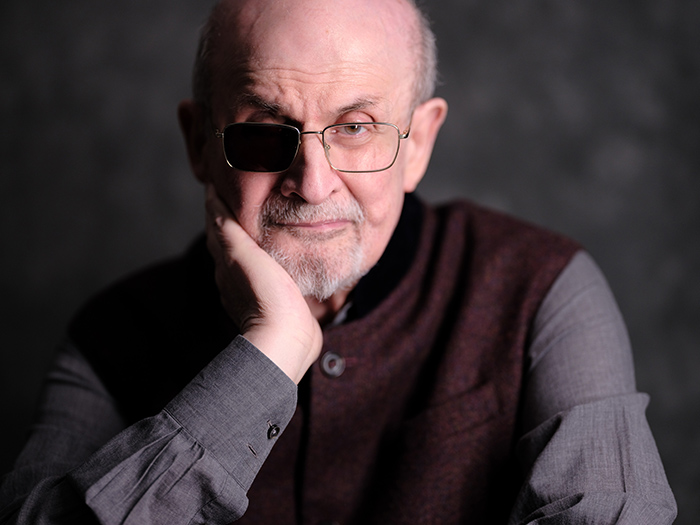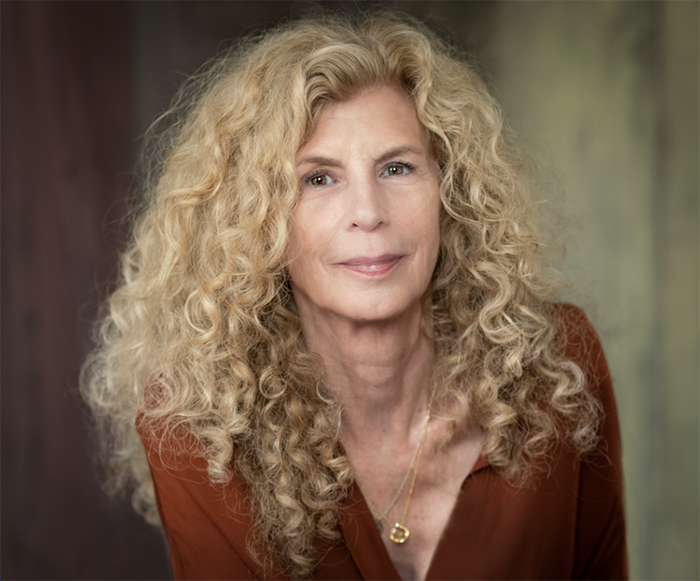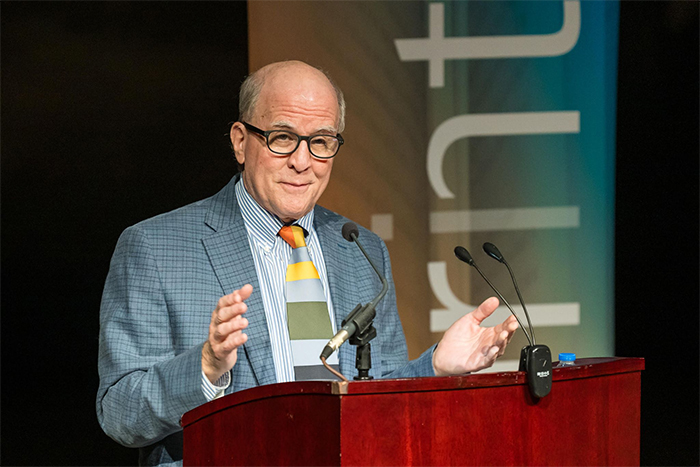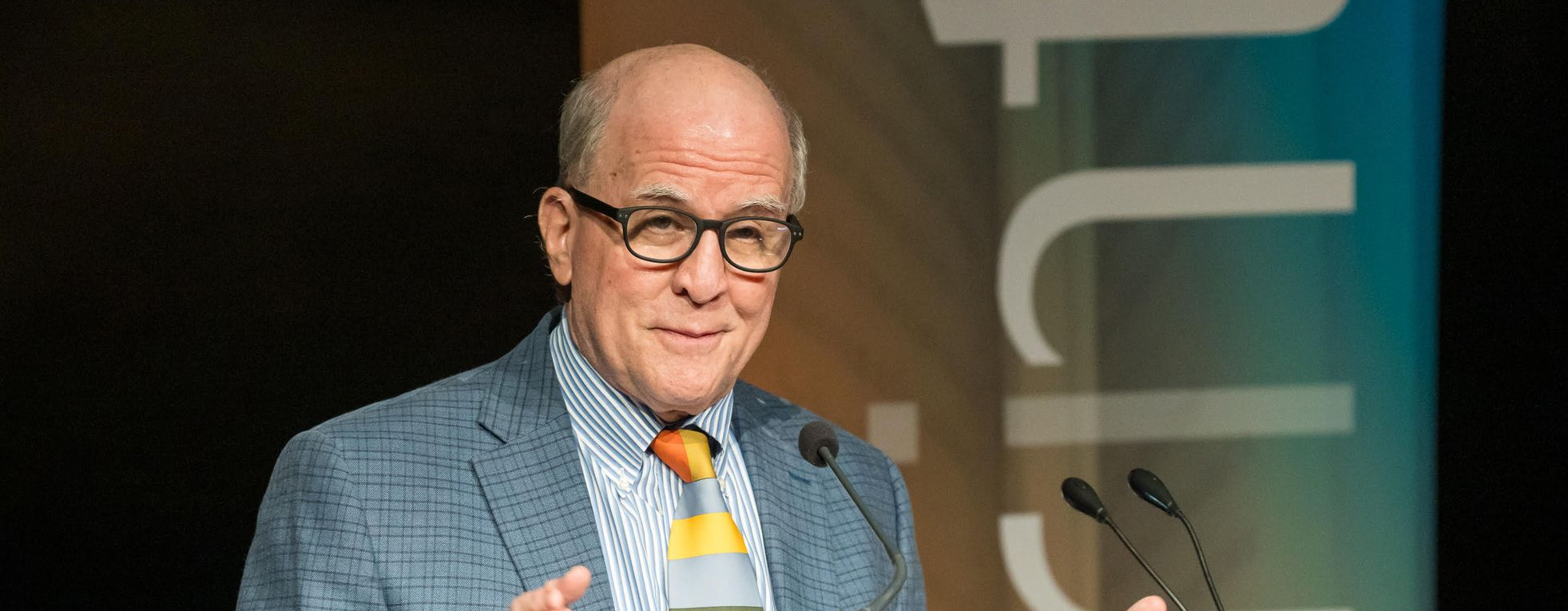The clues lay in the lineup. Sitting down for a talk with Rich Levy and Krupa Parikh, executive and deputy directors of Inprint, about their 2025-2026 Margarett Root Brown Reading Series, I soon wondered if such an array of superstar authors like Salman Rushdie, Chimamanda Ngozi Adichie, George Saunders, and Yann Martel signaled something momentous. And it did, for Levy had both good and bad news for Houston bibliophiles. After three decades with Inprint, Levy has announced his retirement. Yet before he steps down, the Inprint team have put together a mic-drop of a season filled with master storytellers who will take literature lovers on fictional adventures across time and the world.
The last reading in 2025 comes from Booker Prize winning author Kiran Desai and her latest, The Loneliness of Sonia and Sunny. Levy says this one is getting quite the buzz with this love story about two Indian writers with ever tangled U.S ties.
In the new year, probably the biggest name in contemporary literary fiction, Salman Rushdie, returns to Houston with The Eleventh Hour, a collection of five interconnected stories. This is Rushdie’s first book of fiction since he was violently attacked and stabbed at a New York lecture in 2022. This Houston event will be one of only a handful in the U.S., and for both security and the rarity of the reading, Inprint won’t announce the venue until early January.

1 ⁄6
Kiran Desai; Photo by Michael Sharkey.

2 ⁄6
Salman Rushdie; Photo by Eliza Griffiths.

3 ⁄6
George Saunders; Photo by Zach Krahm.

4 ⁄6
Yann Martel; Photo by Cemma Love.

5 ⁄6
Marie Howe; Photo courtesy of the artist.

6 ⁄6
Inprint Executive Director Rich Levy; Photo by RM Photography.
February brings MacArthur Fellow and one of the few Americans to win a Booker Prize, George Saunders, reading from his mystical new novel Vigil, about a dying Texas oil man and the spiritual being tasked with ferrying him beyond.
A giant in the Spanish-speaking literary world, Mexican novelist Álvaro Enrigue makes his Inprint debut in March with Now I Surrender, translated by Natasha Wimmer. Another complex journey into the past for the series, Surrender depicts life along the 19th‑century U.S.- Mexico borderlands with intertwining stories of frontier life. If one literary adventure is not enough for a month, March also puts the spotlight on poetry with Marie Howe reading from her 2025 Pulitzer Prize winning book, New and Selected Poems.
Theater fans who just caught the dazzling and devastating Life of Pi as part of the Broadway at the Hobby series won’t want to miss the original novel’s author, Yann Martel, when he takes the Alley Theatre stage to read from Son of Nobody in April. Sounding like an intricate puzzle box of stories within stories, Nobody unlocks a tale about an academic’s discovery of a lost ancient, epic poem.
Appropriately, for the last reading of Levy’s tenure, the season comes to a sorrow-tinged sweet end in May with a literary party and reading from two young writers with strong Houston and Inprint ties. Both winners of Inprint Donald Barthelme Prizes, brittny ray crowell will read from her poetry collection, Cord Swell, and Nina McConigley will read from new novel, How to Commit a Postcolonial Murder.
When I asked Levy how Houston’s literary landscape has changed over these 30 years, especially when it comes to the caliber of authors they are able to bring, he grew introspective, recalling when the reading series was at the Museum of Fine Arts Houston.
“There weren’t really speaker agents, per se. And the writers at the creative writing program would call their friends and say: want to come to town and give a reading and we’ll have dinner and drinks. It was very different,” he says with a laugh. Now when they go to New York for meetings with publishing houses, they get quite a different reception.
“They think of Houston as a major venue for their writers. They’re going to get a good crowd. Sell a lot of books; get some media attention. And that’s a big change.”
Levy says that the audiences have certainly grown over the years, with Parikh adding she believes audiences’ conceptions of an Inprint reading have also changed.
“People didn’t recognize this as a fun, culturally significant thing to do,” says Parikh. “But over the years, we worked towards making this part of the performing and arts scene in Houston. Now audiences take it more seriously, take it as their evening out.”
—TARRA GAINES




